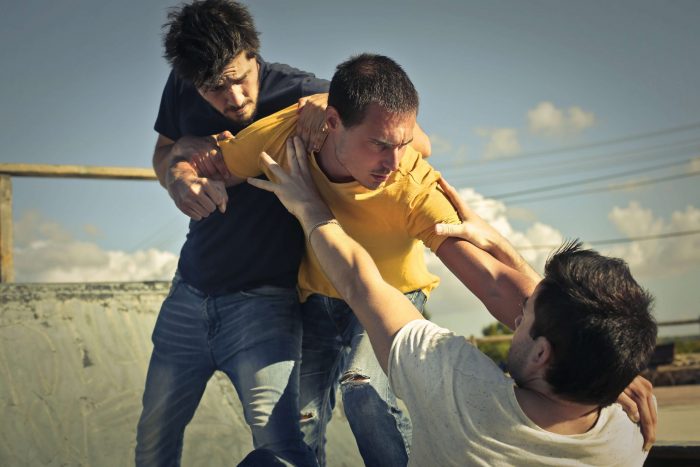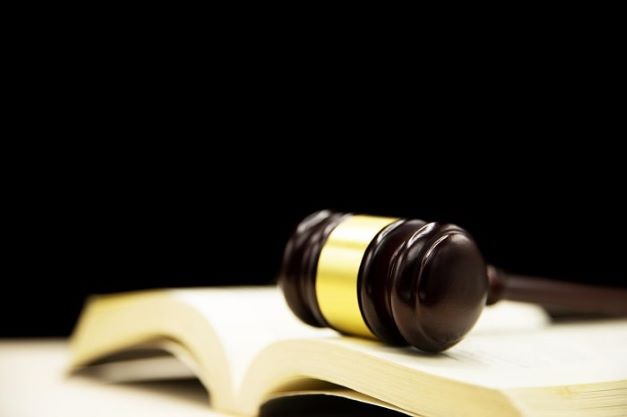The federal legislation recognizes the term hate crime as a “traditional offense with an added bias element.” That indicates anything from vandalism to arson and murder, with the difference that the victim was chosen because of its ethnicity, race, disability, religion, or other specific elements.
Each state can have a different hate crime law, so what about the statutes in California? Here is what you should know about how hate crimes are regulated in this state!

What Is a Hate Crime?
A hate crime has many offenses as the underlying crime. That varies from physical assault, bullying, and harassment to mail crime, property damage, offensive letters, and graffiti.
The critical component of a hate crime is that the victim belongs to a particular social group. Actually, it’s enough for the offender to believe that they are a member of that group. It could be a specific nationality, race, religion, sexual orientation, or gender identity. Some even have a bias toward a physical appearance, and that prejudice can lead to a hate crime.
You can report hate crimes to authorities. According to reports, there were 1,530 hate crimes in California in 2020. The motivation for over 1,000 offenses was racial bias. Most hate crimes were violent crimes, ranging from intimidation to aggravated assault.
Unfortunately, hate crime statistics don’t show the deterioration of bias-motivated violence after implementing this law.
Does Los Angeles Have a High Crime Rate?
According to the 2018 Los Angeles County Commission on Human Relations hate crime report, there was an increase in these crimes by 2.6% in 2018.
That year, the number of reported hate crimes was 521 which was the largest amount the city has seen since 2009.
Racially-motivated hate crimes made up the majority of hate-related crimes that year at 52%. While religious crimes were on the decline in 2018, anti-Jewish crimes were rising by 14%. Hate crimes where there was anti-Jewish sentiment made up an overwhelming amount of the religion-motivated crimes at 83%.
African-Americans were the most victimized in racial-hate crimes in the county and a highly victimized group in both anti-transgender crimes and sexual orientation crimes. African Americans make up 9% of those living in Los Angeles Count, but they are targeted by racial hate crimes 49% of the time.
The Metro SPA Region had the most hate crimes reported. San Fernando Valley was next for most reported hate crimes. There were 92 hate crimes that went to the District Attorney and charges were filed in 81 of those cases. There were 77 adults and four juveniles charged for hate crimes in L.A. County. Of those that were charged 64 adults received felonies while 13 received misdemeanors.
The state defines hate crimes as those which produce evidence that offenses were committed with bias, hatred, or prejudice against other’s race, religion, ancestry, national origin, disability, gender, or sexual orientation. The most prevalent factor behind hate crimes in the county was race. Sexual orientation and religion followed closely behind as motivating factors for hate crimes in 2018.
What Is the Difference Between a Violent Crime and a Hate Crime?
A violent crime involves using violence, but it isn’t necessarily motivated by hate. Here is an example – a robbery that went wrong and resulted in a great bodily injury to the worker at the gas station is a violent crime. You could even consider it attempted murder, but it’s not a hate crime. The robber didn’t shoot the worker because they hated him on a racial on any other basis.
Different types of violent crimes also include forced sex acts, arson, assault and battery, kidnapping, extortion, first-degree burglary, etc. The main difference is that violent crimes can be hate crimes, but that’s not mandatory.
What Are the Different Types of a Hate Crime?
There’s an actual and perceived characteristic of hate crimes. The actual characteristic is when the offender acts toward a person that really belongs to a specific social group.
On the other hand, the perceived characteristic is when the offender only thinks the victim belongs to that group. They could commit the act thinking the victim belongs to a specific religion. But if they don’t get confirmation, it could turn out the victim wasn’t a member of that religion.
The types of hate crimes vary but could include:
- Assault – It occurs when the victim fears imminent harm.
- Battery – It happens when the offender actually commits or attempts a physical strike or offensive touch.
- Disturbing the peace – For example, this could be stopping a religious meeting on bias motivation.
If you’ve been accused of a hate crime, it’s necessary to contact a professional lawyer immediately. Our experts offer everything from assault and battery to disturbing the peace attorney services. You can count on our skills and decades of experience to help you define the best defense strategy for your case.
When Is a Hate Incident Also a Hate Crime?
A hate incident is a behavior or action led by biased motivation. While hate is the reason behind the incident, the law doesn’t qualify it as a crime.
Hate incidents include, but aren’t limited to:
- Name-calling and insulting someone
- Posting hate material on personal property, but also in a way that doesn’t cause other property damage
- Distributing materials with hate messages
The freedom of speech given by the US Constitution allows hate incidents as long as they don’t break someone’s civil rights. According to the California Ralph Act, every person has a civil right to be free of the threat of violence or actual violence. That includes violence to the individual and their property based on biased motivation for belonging to a specific group.
What Are the Penalties for Hate Crimes in California?
California law says it is a crime in and of itself if someone acts, based on prohibited bias, too:
- intentionally injure, intimidate or threaten someone that prevents the exercise of a person’s civil rights; or
- intentionally damage or destroy a person’s property in order to interfere with the exercise of his/her legal and constitutional rights.
Violation of this law is enough to receive criminal penalties, and the prosecutor does not have to prove any other California criminal law was violated. However, speech, without a physical act, is not enough to be convicted under this statute, unless:
- the speech threatened violence; and
- the accused had an evident ability to carry out the threat.
A conviction for this offense is a misdemeanor and subject to sentences of up to one year in jail, $5,000 in fines, and 400 hours of community service.
California has an enhanced penalty for hate crimes. Depending on what the offender committed, the offense could be upgraded, which leads to harsher sentences. California also has civil remedies for hate crimes, and they vary on the case.
Criminal Penalties
The potential criminal penalty depends on the act committed. A hate crime can be used to get an enhanced penalty for the offender. For example, you commit a felony punishable with three years in prison. The court determined it was not only a felony but also a hate crime. The additional sentence for that is up to three more years in prison.
Some hate crimes are a misdemeanor, which means they are punishable by less than a year in prison. The Penal Code 422.7 PC states that committing a hate crime could upgrade a misdemeanor into a felony. You can avoid that with a reliable criminal defense lawyer in your corner, so make sure to contact our experts as soon as possible!
Civil Remedies
As for civil remedies in California, hate crime victims have the right to ask:
- Equitable or injunctive relief
- Restraining order
- Actual and punitive damages
- Penalty assessments
The maximum civil penalty can be $25K plus attorney’s fees. If you were accused of a hate crime, don’t hesitate to contact our lawyers. We have a professional team that will build the best case possible to help you get through the process with the lowest possible consequences.
What Are the Consequences and Defenses?
If the criminal act committed is also a hate crime, it could increase the penalty to three years in prison. It’s the court’s discretion to determine if it will be 12, 24, or 36 months. And if the offender voluntarily acted with others, the maximum enhanced penalty for a hate crime is 48 months.
Unfortunately, people often get wrongly accused of hate crimes. It’s because the victims frequently belong to sensitive social groups that are actually common victims of these crimes. Court has a hard task to determine whether there was a biased motivation for the crime. That’s why your lawyer could create a defense that would respond to accusations and reject them.
The defenses include the following:
- The hate crime didn’t happen. You can argue that there was biased motivation, but a wrongful act toward the victim never occurred.
- There was no biased motivation. Another approach is to admit the criminal act but deny that the offender was biased. While this could remove the hate crime charge, the offender would usually end up guilty for the underlying crime.
- Free speech. The US Constitution allows free speech. Depending on the case, you could argue that the offender believes they spoke freely and didn’t commit a criminal act. This defense is only applicable if the hate crime was only verbal.
What to Do If You Have Been Charged with a Hate Crime?
Hate crimes are particularly sensitive, especially if the public is involved. If you hear that someone was arrested and accused of a hate crime, the public will rush to convict the individual. It’s hard to change the public’s perception later, but you need to fight for your innocence.
The first thing you need is a competent and experienced attorney. An assault and battery lawyer specializes in those cases, but you also need an expert in hate crimes. Our team has massive experience and a wide range of skills necessary for penalty acquittal or mitigation. Working with our skilled lawyers gives you the best possible chance at a successful outcome.
If you’ve been charged with a hate crime, contact our office and schedule an appointment to discuss potential defense options!
Speak to a Criminal Defense Attorney
If you have either been suspected or charged with a hate crime, contact the criminal defense attorneys at Manshoory Law Group, APC as soon as possible. Immediate action is needed to preserve evidence and witness testimony. Call our Los Angeles criminal defense firm today for an initial case analysis.



